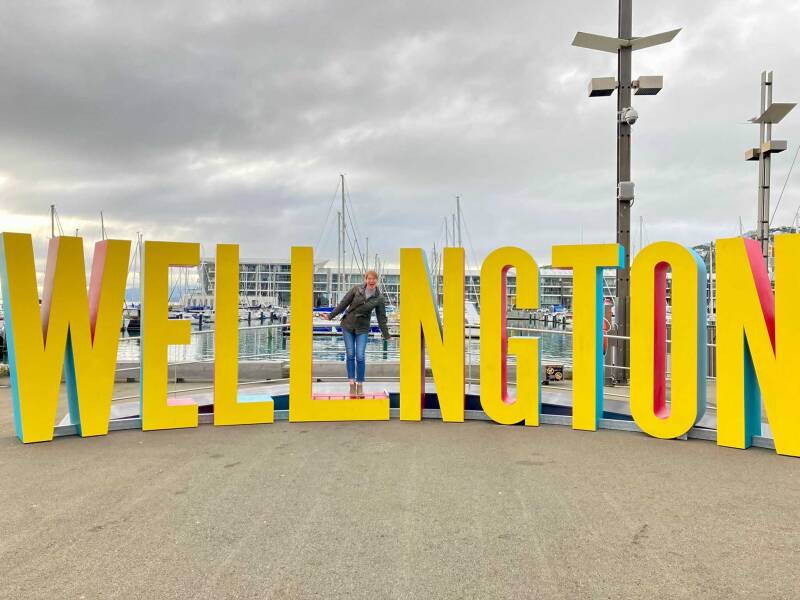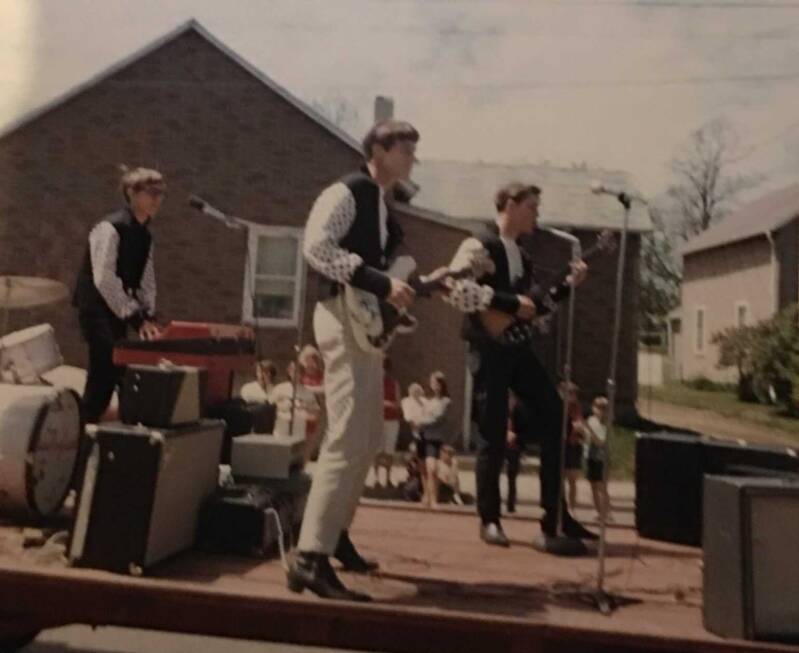From Making Music with The Wellingtons:
Introduction
This is the saga of a 1960s rock-and-roll band in northeastern Wisconsin. The band was formed sixty years ago, so the vantage point of perspective is both good and bad. Memories fade, and without some sparks, time can diminish the sharp story highlights I would like to use in framing this chronicle. At the same time, despite the passage of time, those brightest feelings still live on in my heart, which assists the narrative as it unfolds.
The story of The Wellingtons is first and foremost about music: a love of listening to and making the music of the times. A group of guys commit to getting a band going and sustaining it with a little musical ability and sheer determination. We made the most of the adventures and opportunities that came our way and busted through obstacles that confronted us. Underneath was the relationship among the band members—critical for the success of the music and The Wellingtons.
In the 1960s, many teenagers wanted to be in a band to cover the music the radio and record industry was pushing. The reality for most groups, however, was pretty grim. Many bands never launched and, if they did play a few gigs, were not able to continue on long enough to become successful. My guess is that most bands in our area lasted between three and six months and then broke up. In some cases, older band personnel (in their twenties) had a difficult time maintaining the same membership for a sustained period. Band life interfered with family, and people needed a regularly scheduled work life to earn a living. Other groups lacked the drive or did not have the cohesiveness or talent to make it work. The Wellingtons was a teenage band looking to make great music and groove inside the tunes of the day. As we were in high school, we had some flexibility to commit to the band and a highly irregular playing schedule. Our band stayed together for more than three years.
A good part of the success of The Wellingtons was the music, the band’s willingness to learn new tunes, and a commitment to continually make our music better, complemented by our drive and bravado to go out and find new places to play and promote ourselves across the region. Business managers handled this for many successful groups. The Wellingtons had Dave Rudolph (our lead guitar player) and me. The commitment that Dave and I made was central to our scheduling successes, which increased the variety of places we were able to secure gigs, and then play the jobs with all our heart and soul.
We were fearless and confident in getting the jobs and getting up on stage and playing the tunes of the day without worry or regret. So this is the tale of The Wellingtons rock-and-roll group from an insider’s perspective with a unique view of the band’s evolution and the making of the music.

Ode to the Wellingtons II
The 60s Wellingtons, what a rock and roll band
Playing that music across the land
Electric guitars and keyboards too
With the drums driving the beat oh so grand
Covering the standards, and singing the blues
For the music, the beat and the dancing too
The teenaged band members staying lean
With energy for adventure and a positive gleam
And keeping that music on the beam
Blending the music with vocals and zest
For the music, the beat and a dancing crest
Playing it right, true with the songs and the call
Playing in schools, the bars and dance hall
Rock and soul, pop and all
Songs of love and the lonely, songs of the rise and fall
For the music, the beat and having a ball
Keeping the rhythms and making them galore
Songs fast and slow, move dancers to the floor
The tunes we all knew, the songs we make soar
Doing it for the dancing, and asking for more
For the music, the beat and the fans to please
Doing it for the dancing of the fans to please
Making music with the Wellingtons, it’s a breeze


This is Duane Schultz’s first foray in writing a book, as he wanted to do a legacy piece for his children and grandchildren. After this stint in rock and roll back in the day, he graduated from college and worked for Wisconsin’s Governor Lucy as an Administrative Assistant, then setting up workforce training programs across the state. He was then hired on at Milwaukee Area Technical College. Initially, he worked with community-based classes, retraining programs, and outreach efforts, and then he set up workplace education and supervised technology programs in the technical and industrial division. He wrote numerous state and federal grants while working at the college. He is now retired and living in the Milwaukee area.
